
By
Diyaa Mani
January 26, 2023
Updated
November 20, 2024
Stay interviews are a proactive solution to hiring and retention matters
They have become increasingly important in today's fast-paced and highly competitive job market, where retaining top talent is essential for the success of any organisation.
Stay interviews have become increasingly important in today's fast-paced and highly competitive job market, where retaining top talent is essential for the success of any organisation.
By conducting stay interviews, employers can gather valuable information about employee satisfaction, identify and address issues impacting employee engagement, and implement strategies to improve employee retention.
What are stay interviews?
Stay interviews are a valuable tool for employers to understand the perspectives and satisfaction of their employees. These interviews are designed to gather information on why employees stay with the company and any potential issues causing them to consider leaving, opening lines of communication between staff and higher management.
By conducting stay interviews, employers can gain insight into what is working well within the organisation and what areas may need improvement to foster more engaged employees and increase current employee retention by making the workplace more positive and productive.
Stay interviews have been around for several decades. It is believed that the practice started in the 1980s as a proactive approach for employers to understand why employees were leaving the company and to gather feedback on improving retention.
Stay interviews aim to identify and address any issues causing top-performing employees to consider leaving the company - effectively becoming a retention strategy.
In the past, exit interviews were the norm and were only conducted when an employee was leaving the company. These interviews were focused on understanding why an employee was leaving and often provided little insight into how to improve retention.
On the other hand, stay interviews focus on taking proactive steps, understanding why employees stay with the company, and gathering unique, valuable feedback to improve employee engagement and retention.
Over the years, stay interviews have become an increasingly popular tool for employers to improve employee engagement and retention. Organisations of all sizes and industries have adopted them.
They are now considered a best practice - a two-way communication between employees and employers for any organisation looking to improve retention, lower turnover rates, and attract top talent.
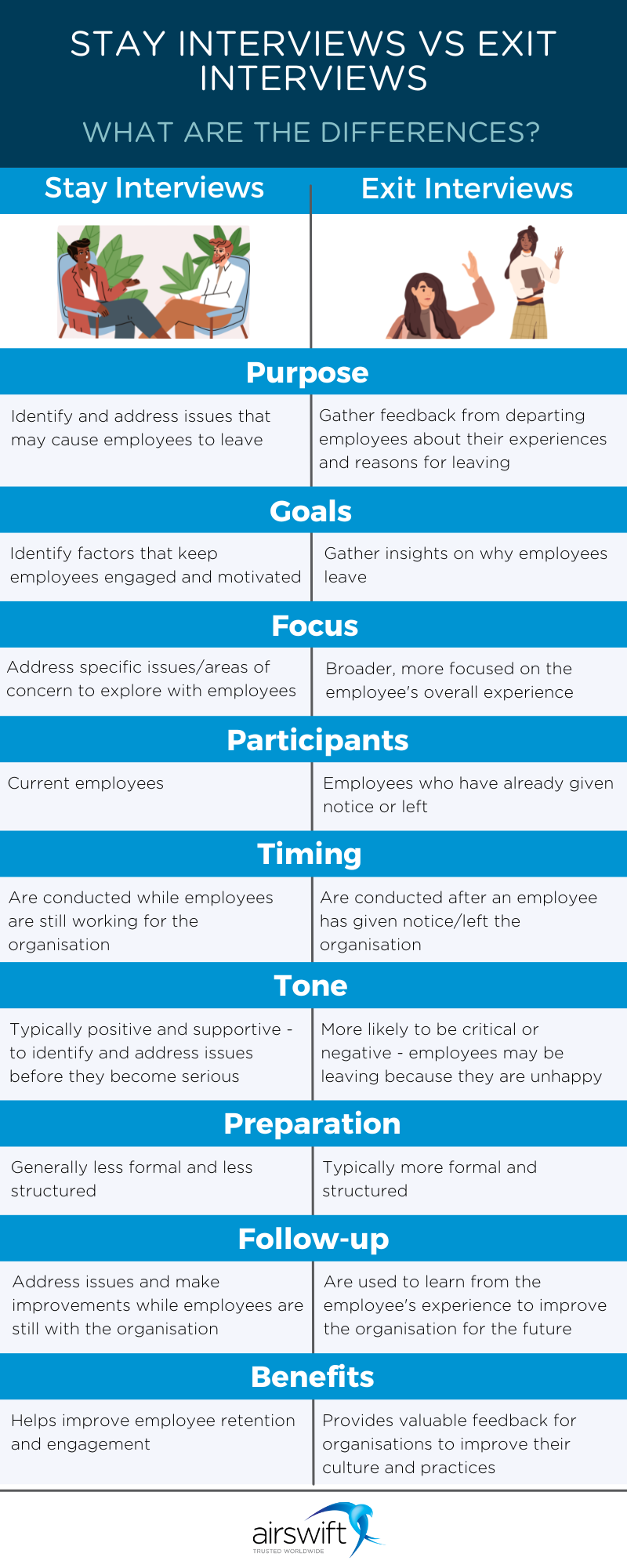
Image: Infographic titled Stay Interviews vs Exit Interviews. The content outlines the main differences between them. A stay interview is focused on identifying issues before an employee leaves. An exit interview gathers feedback from departing employees about their experience and reasons for leaving. A stay interview is more proactive and focused on employee engagement and retention.

Advantages of stay interviews
They enable proactive issue identification
Proactive issue identification is one of the main advantages of stay interviews for employers. By conducting stay interviews, employers can identify and address issues impacting employee satisfaction before they lead to employee turnover.
This allows employers to take proactive steps to improve employee engagement and retention.
For example, suppose an employee expresses dissatisfaction with their workload or a lack of opportunities for advancement. This would allow managers to initiate a two-way communication to address these concerns before the employee actively seeks a new job.
By identifying and addressing issues early on with transparent communication, employers can prevent employees from disengaging and potentially leaving the organisation.
Stay interviews can also help employers identify patterns or common themes among employees. If multiple employees experience similar concerns or issues, it may indicate a more significant organisational problem that needs to be addressed.
By identifying these patterns, employers can address the root causes of dissatisfied and disengaged employees and improve employee engagement initiatives and retention rates.

They contribute towards employee engagement and retention
One of the key advantages of stay interviews is that they foster a more engaged workforce and amp up retention efforts. By conducting stay interviews, employers can gain insight into what works well within the organisation and what underlying issues need improvement. This information can then be used to take a specific action plan to increase employee engagement and retention.
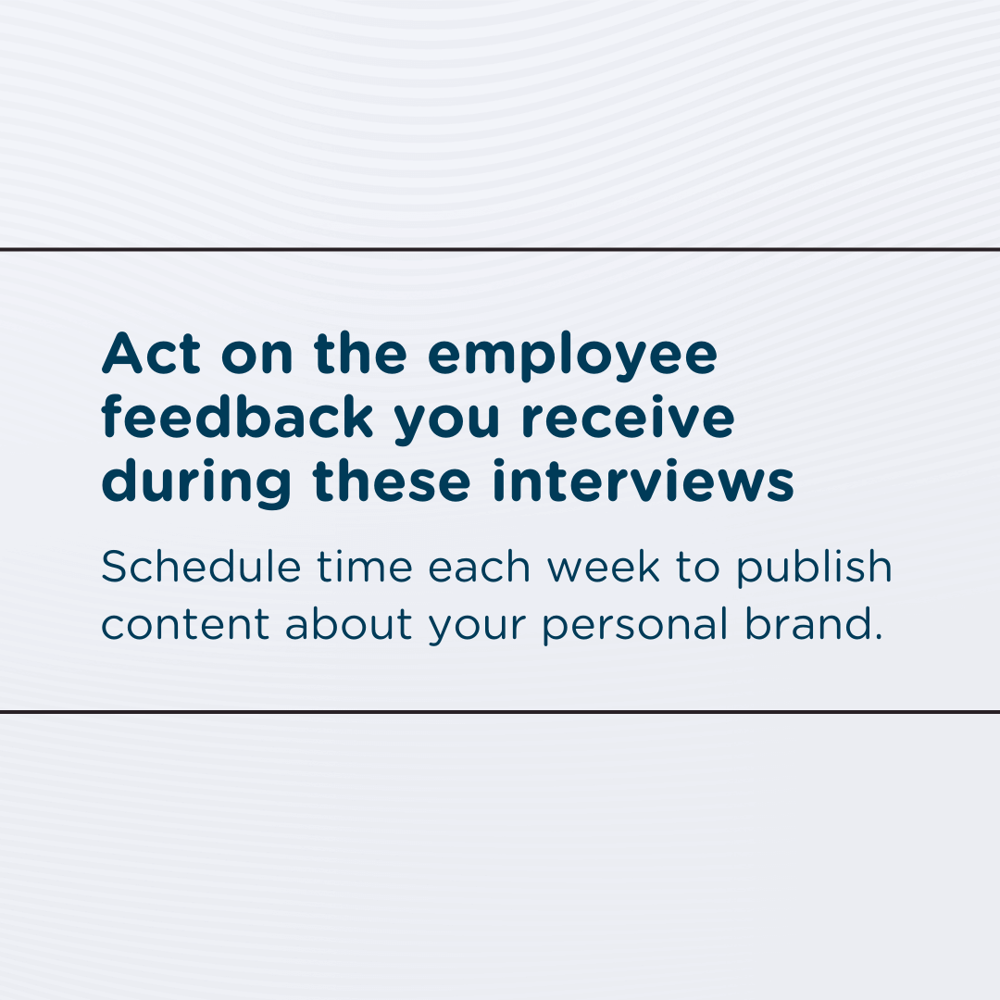
For example, suppose an employee is dissatisfied with their workload or lacks career growth. In that case, an employer can address these concerns by providing additional training or development opportunities or adjusting the employee's workload. By addressing these issues, the employee will likely feel more satisfied and less likely to seek employment elsewhere.
Additionally, stay interviews can help employers identify and recognise employees who are mainly engaged and satisfied with their work and take steps to retain and reward these valuable employees.
By showing appreciation for engaged and hardworking employees, employers can encourage these satisfied employees to stay with the company longer.
They create a window for employers to access employee feedback
Stay interviews provide a platform for employees to share feedback and ideas with their employers. This can be especially valuable for employees who may be hesitant to speak up or share their thoughts in a more formal setting.
During a stay interview, employees can share their thoughts on the company culture, their role within the organisation, and any potential areas for improvement. This constructive feedback can be used to make positive organisational changes, such as addressing concerns about workload, improving communication, or promoting a more positive company culture.
Feedback from employees can also be used to identify and recognise employees who are mainly engaged and satisfied with their work and take actionable responses to retain and reward these valuable employees.
By gathering employee feedback, employers can understand what factors contribute to employee engagement and satisfaction and make extra efforts to improve these factors.
Stay interviews also give employees a sense of being valued and heard, which can increase their sense of belonging and engagement. Employers can create a culture of open communication and transparency by providing an open and honest platform for employees to share their thoughts, leading to higher employee engagement and satisfaction.

They help employers make positive changes in the workplace
Stay interviews can be a valuable tool for positively impacting the organisation. By gathering employee feedback about job satisfaction, employers can identify areas where improvements can be made to create a more positive and productive workforce.
For example, if an employee expresses dissatisfaction with the company culture, an employer can address this concern by promoting a more positive and inclusive culture. This can be done by implementing diversity and inclusion initiatives or creating opportunities for employees to give and receive feedback.
Or they express concerns about communication within the organisation. In this case, an employer can improve lines of communication by implementing regular team meetings, creating an open-door policy, or encouraging employees to share their thoughts and ideas.
If employees express a need for more development and training opportunities, an employer can provide them with more training and development opportunities, such as workshops, seminars, or online courses.

They make it easier for employers to recognise valuable employees
Recognising valuable employees is another advantage of stay interviews. By conducting stay interviews, employers can identify employees who are particularly engaged and satisfied with their work and take steps to retain and reward these valuable employees.
During a stay interview, employees can express their satisfaction and engagement with their job, team, and the company. This information can help employers identify key employees who are particularly invested in their work and the organisation's success.
These employees are more likely to be productive and dedicated, and employers need to recognise and reward them for their efforts.
One way to recognise valuable employees is by offering them promotions, bonuses, additional benefits, or other incentives. Another way is by giving them opportunities for professional development, such as training or mentorship programs aligned with their career pathways.
By providing these opportunities, employers can demonstrate appreciation for valuable employees and encourage them to stay with the company longer.
Recognising valuable employees is also beneficial for the company culture, as it sets an example, establishing a culture of trust, enhancing psychological safety, and improving employee performance by encouraging them to become more engaged and ensuring employee loyalty.

They are cost effective
Stay interviews are cost-effective for employers to gather valuable insights about employee satisfaction and engagement. It is a form of two-way communication that does not require additional equipment or resources and can be conducted in various ways, such as in person, over the phone, or even through an online survey. This allows employers to run stay interviews without incurring high costs.
In contrast, other methods for gathering employee feedback, such as employee engagement surveys, can be more costly. These methods may require the use of specialised software or the services of a consulting firm, which can be expensive. Additionally, these methods may not be as effective as stay interviews in identifying and addressing specific organisational issues.
Another cost-effective aspect of stay interviews is that they can be conducted regularly, such as once per year or on an as-needed basis. This allows employers to run stay interviews as often as necessary without incurring high costs.

They are flexible
Flexibility is another advantage of stay interviews. They can be conducted in various ways, depending on the organisation and the employer's and employees' preferences. This allows employers to choose the method that best suits their needs and the needs of their employees.
For example, some employers may conduct stay interviews in person, using a 1-to-1 approach that allows for a more personal and meaningful conversation. Other employers may prefer to conduct stay interviews over the phone or through an online survey, which allows for more anonymity and can be more convenient for employees.
Another aspect of flexibility is that stay interviews can be conducted regularly, such as once per year or on an as-needed basis. This allows employers to conduct regular check-ins, depending on their specific needs and the needs of their employees.
Stay interviews can be customised to suit different types of employees, for instance, in-person interviews for managers and online surveys for front-line employees.

How can you make the most of a stay interview as an employer?
Here are several ways to make the most of a stay interview:
Define your purpose and objectives
Clearly define the purpose and objectives of the stay interview and communicate this to the employees. This will help employees understand the importance of the interview and how their feedback will be used to improve the workplace.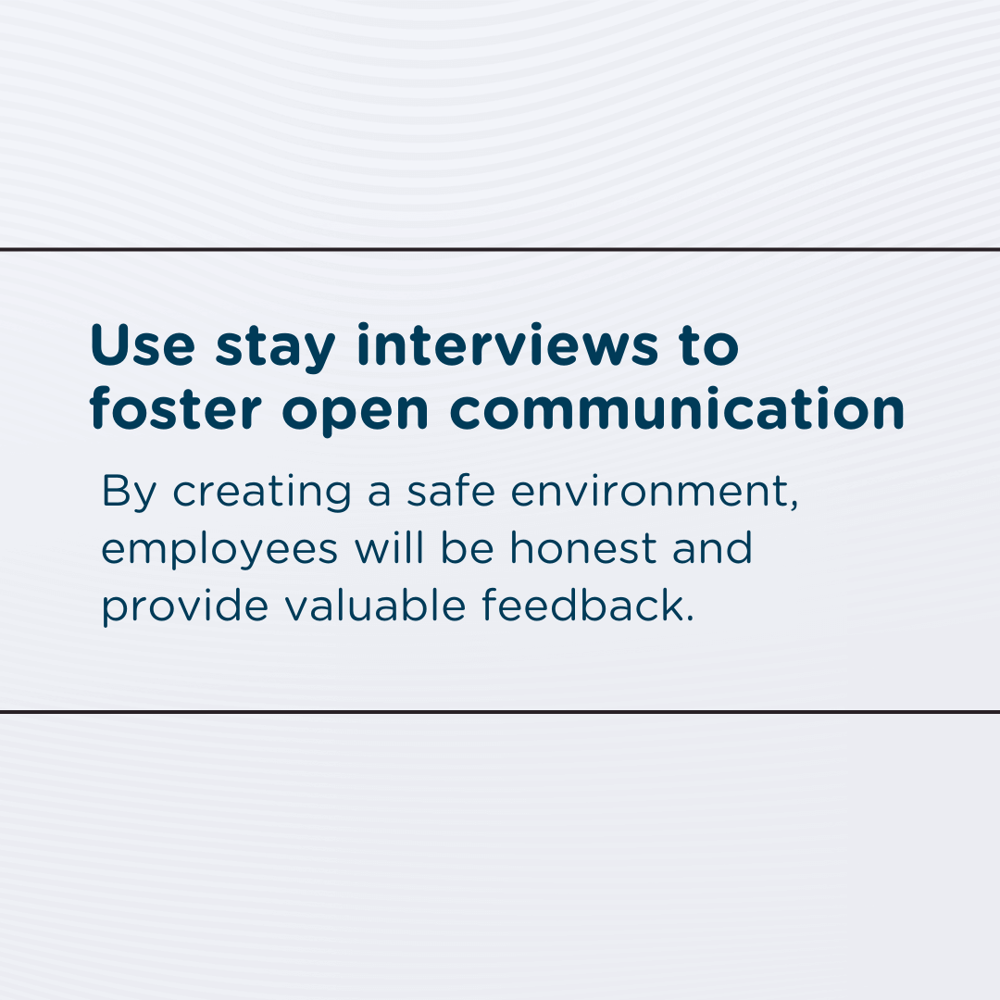
Choose the right interviewer
An interviewer skilled in conducting interviews and understanding the employee's role and responsibilities. The interviewer should be able to create a comfortable and open environment where the employee feels safe to share their thoughts and opinions.
Prepare a list of questions
This will help you gather the necessary information to improve employee engagement and retention. The questions should be open-ended and focused on understanding the employee's perspective on their job, the organisation, and the future.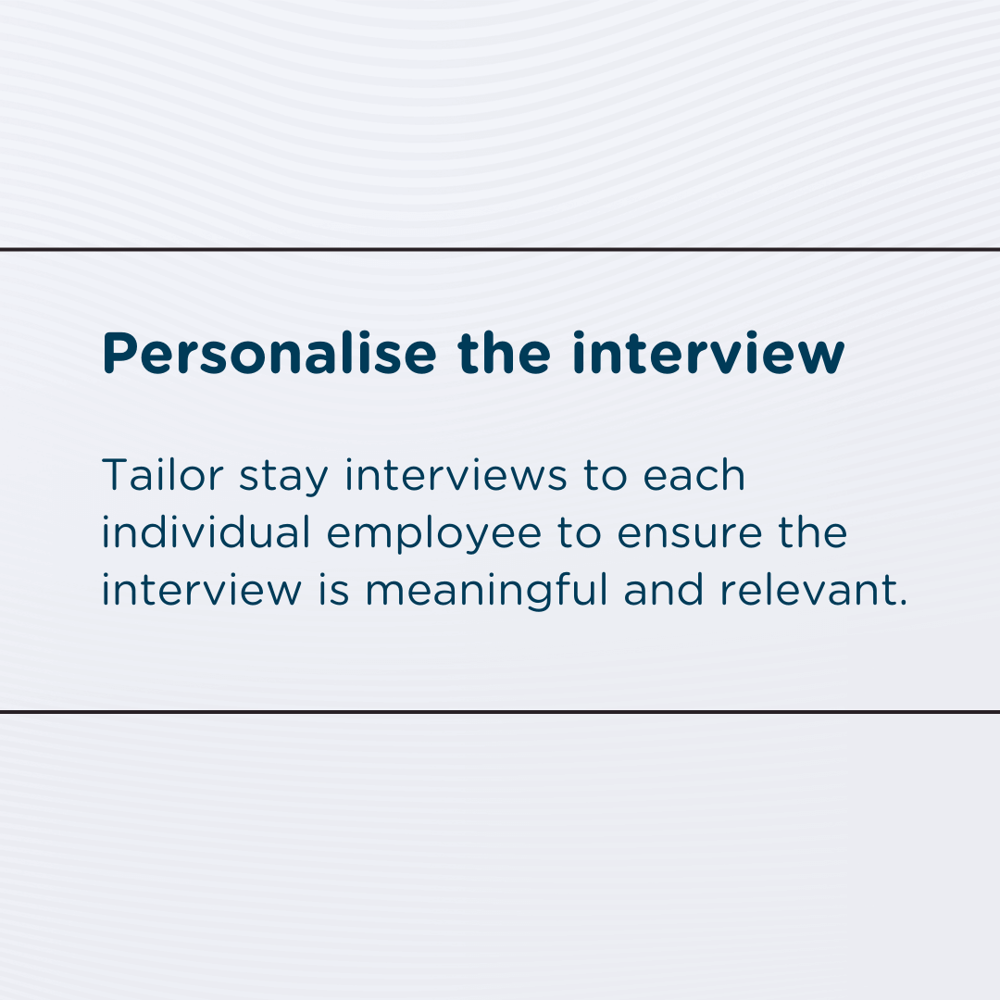
Communicate the process and schedule
This will help your employees make any necessary preparations before their interview date.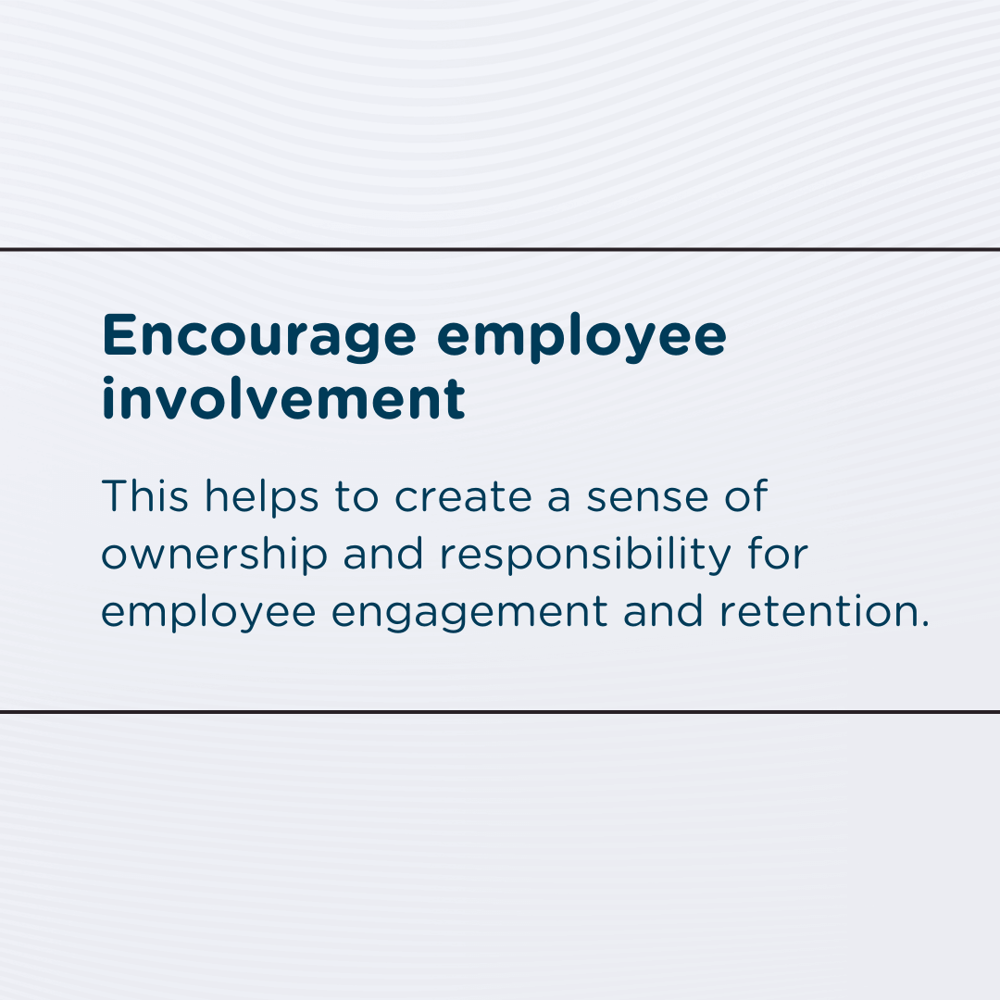
Create a comfortable environment
Aim to create a relaxed and open environment where employees feel safe to share their thoughts and opinions. Encourage the employee to speak candidly and openly and let them know that their feedback is valued and will be used to improve the workplace.
Listen actively and ask follow-up questions
During the stay interview, listen to what the employee says. Please take note of their feedback and ask follow-up questions to gain a deeper understanding of their perspective.
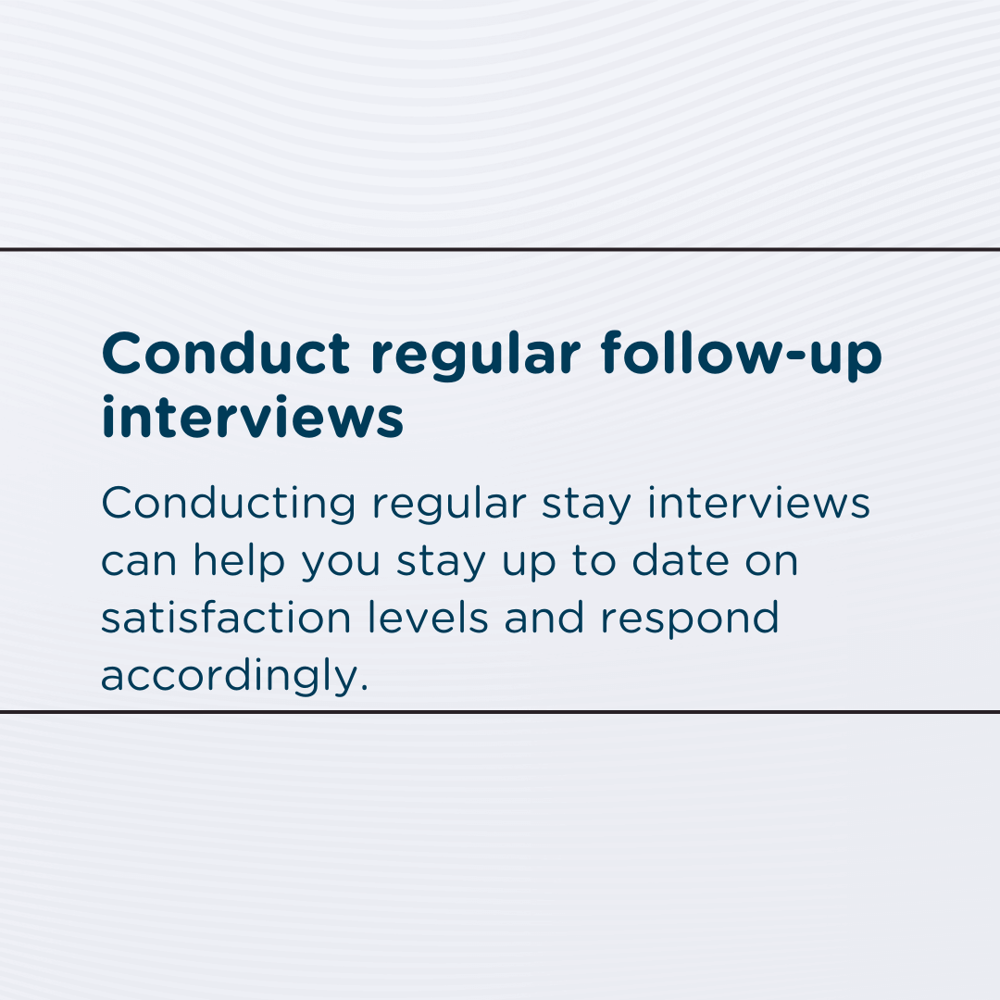
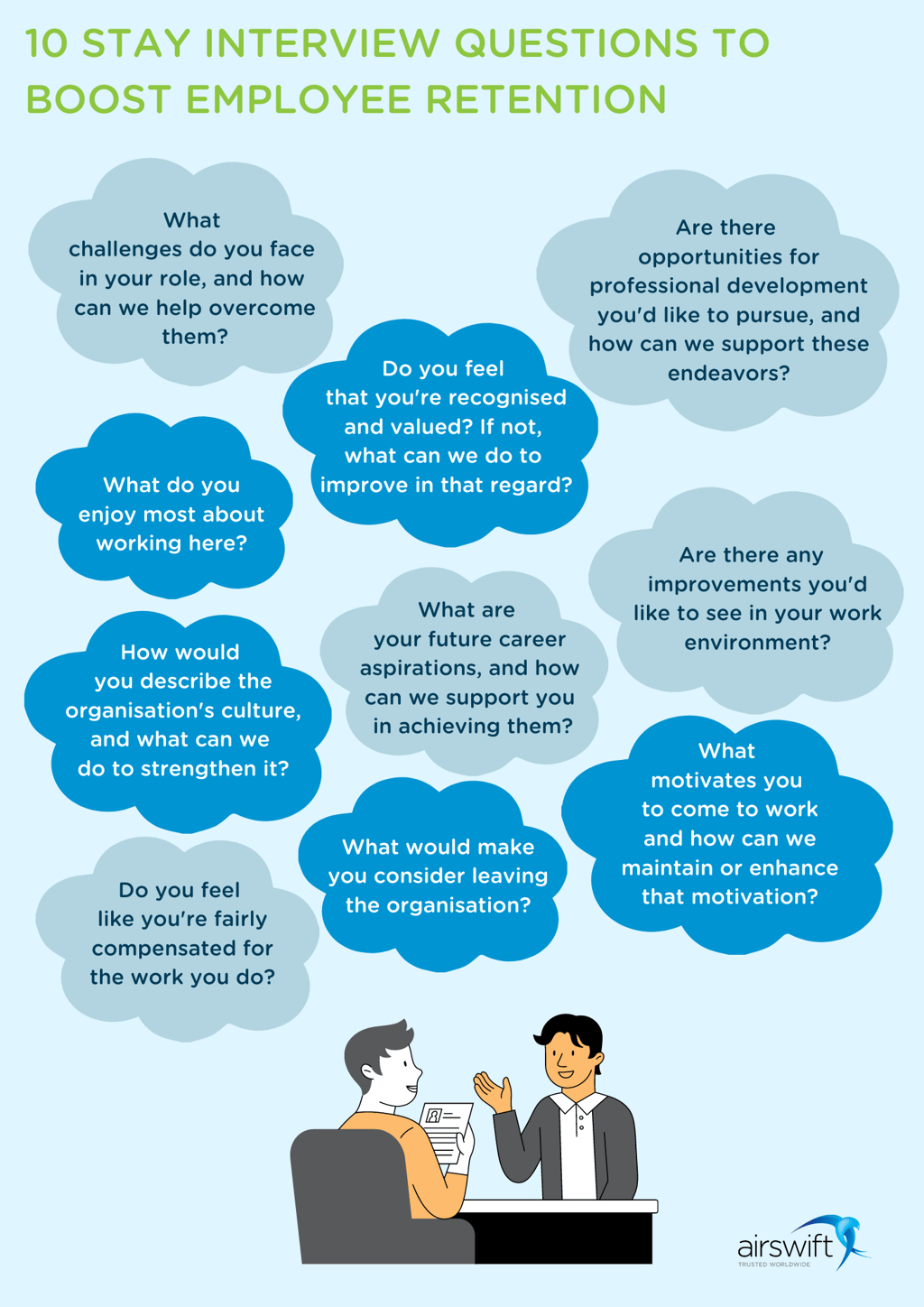
Image: Infographic titled 10 stay interview questions to Boost Employee Retention. Stay interviews are a proactive approach to employee retention, focusing on understanding and addressing the factors contributing to employee satisfaction and loyalty. Unlike exit interviews, which are conducted when an employee leaves, stay interviews aim to identify and enhance the elements that encourage employees to stay with the company.
Follow up and implement changes
After the stay interview, follow up with the employee to let them know how their interview feedback will be used to improve the workplace. Additionally, implement any changes or improvements discussed during the interview.
Make it anonymous
Discretionary efforts can ensure the employee feels comfortable sharing honest feedback. To put them at ease, make the interview anonymous, but also let them know they can share any specific concerns with their manager or HR representative.
By following these steps, employers can create an effective stay interview that will gather valuable information to boost employee morale and increase employee retention rates - this will result in a more positive and productive workplace.

Stay interview methods
Stay interviews can be adapted to suit employees’ styles. This allows employers to put diversity, equity and inclusion (DEI) at the forefront of their approach to employee engagement and help draw out honest and sincere employee feedback. There are several ways to conduct successful stay interviews, including:
- In-person interviews. This allows for a more personal and in-depth conversation and allows the interviewer to observe nonverbal cues and body language.
- Phone interviews. This can be a convenient option for employees who cannot meet in person or for organisations with remote employees.
- Online surveys. This allows for anonymity and can be more convenient for employees.
- Group interviews. This allows for more efficient use of time and can effectively gather feedback from a more significant number of employees.
- One-on-one interviews. This allows for a more personal and in-depth conversation and allows the interviewer to gather more specific and detailed feedback.
- Self-assessment. Encourage employees to conduct self-assessments of their job satisfaction and engagement and share the results with their managers.
Choosing the method that best suits the organisation and the employees' preferences is essential. Employers can also use different ways to gain actionable insight, such as in-person interviews for managers and online surveys for front-line employees.

FAQs about stay interviews
1. What is a stay interview?
A stay interview is a proactive approach employers use to understand why employees choose to stay with a company, addressing potential retention issues and fostering communication between staff and management.
2. How is a stay interview different from an exit interview?
Stay interviews focus on understanding why employees stay with the company, identifying satisfaction issues, and improving retention. In contrast, exit interviews are conducted when employees leave and aim to understand reasons for departure.
3. What are the benefits of stay interviews?
Stay interviews offer several advantages, including proactive issue identification, enhanced employee engagement and retention, valuable feedback, positive organisational changes, recognition of valuable employees, cost-effectiveness, and flexibility.
4. How can employers make the most of a stay interview?
To maximise the effectiveness of a stay interview, employers should define clear objectives, choose skilled interviewers, prepare relevant questions, communicate the process, create a comfortable environment, actively listen, follow up with employees, and consider making the interview anonymous for honest feedback.
5. What are some stay interview methods?
Stay interviews can be conducted in various ways, such as in-person interviews, phone interviews, online surveys, group interviews, one-on-one interviews, and self-assessments. Employers can choose the best method that suits their organization and employees' preferences.
6. Are stay interviews cost-effective?
Stay interviews are cost-effective as they can be conducted using existing resources without specialised software or consulting services. They provide a valuable two-way communication platform without incurring high costs.
7. How do stay interviews contribute to employee retention?
Stay interviews contribute to employee retention by proactively identifying and addressing satisfaction issues, fostering engagement, recognising and rewarding valuable employees, and creating positive organisational changes based on employee feedback.
8. What kind of questions are asked in a stay interview?
Stay interview questions are open-ended and focused on understanding the employee's perspective on their job, the organisation, and the future. Questions may cover job satisfaction, career growth, workload, company culture, and any employee concerns.
9. How often should stay interviews be conducted?
Stay interviews can be conducted regularly, such as once per year, or on an as-needed basis depending on the organisation's specific needs and the preferences of the employees.
10. Can stay interviews be conducted anonymously?
Stay interviews can be anonymous to encourage employees to share honest feedback without fear of repercussions. This discretion ensures a more open and candid conversation.
11. How do stay interviews align with diversity, equity, and inclusion (DEI)?
Stay interviews can be adapted to suit diverse employee styles and preferences, promoting DEI by providing a platform for honest feedback and ensuring that the organisation meets the needs of a diverse workforce.
Elevate your hiring and retention strategy with an experienced workforce specialist
Stay interviews are a solution to address hiring and retention matters in organisations. As we face a new era of a more diverse workforce, where millennials and Gen Z are becoming dominant, stay interviews are increasingly relevant.
These generations value open communication, flexibility, and personal and professional growth opportunities. Stay interviews provide a platform for them to speak up about their job, the organisation, and the future.
Stay interviews allow them to share their thoughts and opinions about their job, the organisation, and the future. By conducting stay interviews, employers can gather valuable information about employee satisfaction, identify and address issues impacting employee engagement, and implement strategies to improve employee retention.
By tuning in to their feedback, employers can gather valuable information about employee satisfaction, pinpoint and solve engagement issues, and implement strategies to retain top talent.
By creating a positive, productive, and engaging workplace that emphasises career progression, personal wellness and psychological safety, employers can attract and retain top talent, especially those from the millennial and Gen Z generations, who are more likely to stay with an organisation that aligns with their values and provides growth opportunities.
And while you focus on building up an excellent organisation comprised of formidable top talents, let us take care of the rest.
Contact us to learn more about how our workforce specialist can help you and hire and retain great talent.

